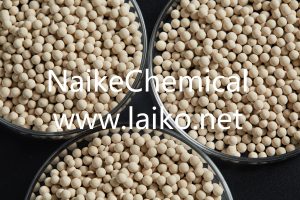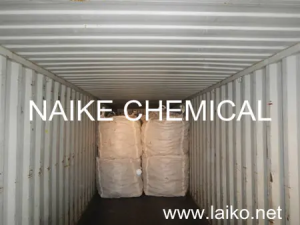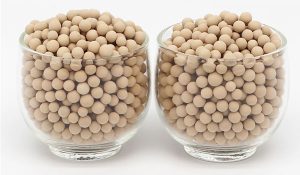What Are the Applications of Molecular Sieve in Petrochemical Industry?
In the more than half a century since the advent of molecular sieves, the technologies have been mainly used to meet the needs of three traditional fields, first of all, in the catalytic process of traditional petroleum and chemical industry, then in the ion exchange process required for the treatment of waste gas and waste liquid in the daily necessities industry, coal mines and radioactive industries, and so on. The application of molecular sieves in the petrochemical field continues to expand, which promotes the rapid development of the national economy. In the petrochemical industry, it is mainly used in petroleum cracking, the drying of ethylene, propylene and natural gas, CO2 desorption, hydrocracking and purification, etc.
1. Molecular sieves can be used as adsorbents
Divided by function, molecular sieve materials with adsorption capacity are mainly used in chemical industry and environmental purification and separation industry, as well as desiccant and other related fields. The physical adsorption ability of molecular sieve materials can adsorb substances. Its internal cavities have strong polarity and Coulomb field, which can adsorb polar molecules and unsaturated molecules. Adsorbent material can be used for separation, purification and drying in industry and environment. Molecular sieves can be used as adsorbents to remove heavy metal ions in wastewater treatment. When treating organic wastewater, the modified molecular sieves can remove compounds in water and the results are good. In the field of gas separation, molecular sieve adsorbents can be used for pressure swing adsorption to produce nitrogen, CO2, oxygen, etc. Molecular sieve adsorbents are also good oil cleaners.
2. Molecular sieves can be used as catalysts
Molecular sieve materials with catalytic function are mainly used in petrochemical industry, coal mining industry and fine chemical industry as catalytic materials. In order to meet the needs of industrial catalytic processes in petroleum refining and processing, petrochemical, coal chemical and fine chemical industries, molecular sieves are in great demand in terms of catalysts.
In order to effectively accommodate molecules inside the molecular sieve, the pore size of the zeolite molecular sieve should be larger than that of the reactant molecule, but it should not exceed a certain range. The catalytic process takes place through a Lewis acid-catalyzed reaction, in which efficient generating molecules must be used to form a complete catalytic process.
3. Molecular sieves can be used as ion exchangers
Molecular sieve materials with ion exchange ability are mainly used in detergent industry, mining industry and waste treatment and other related industries. Ion exchange materials are used in the detergent industry, mines and the treatment of radioactive waste and waste liquids, etc.
Molecular sieve materials have played a great role in the above traditional fields. And due to continuous research and development, the types of molecular sieve materials have reached more than 100 kinds. The elemental composition and structural diversity of molecular sieve materials make it still have a lot of room for development. In addition, due to the large amount of silica sol used in this technology, if the silica sol is produced on our own, the cost of the product will have a certain competitive advantage. At present, the molecular sieve materials that have become large-scale in the industry include dozens of products such as LTA type, FAU type, MOR type, and LTL type.



